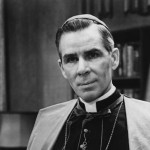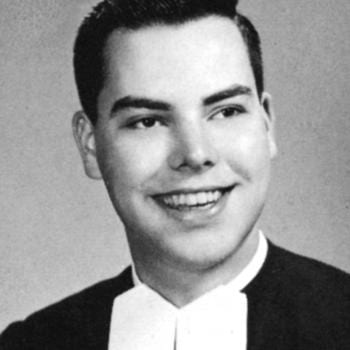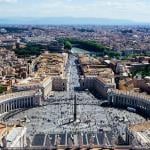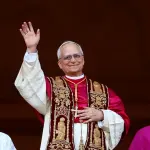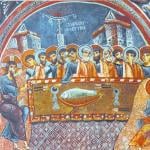From Vatican Radio:
Pope Francis on Monday morning held the Public Ordinary Consistory for the forthcoming Canonization of Blessed Pope John XXIII and Blessed Pope John Paul II.
During the course of the Consistory in the Vatican’s Consistory Hall, the Pope decreed that his two predecessors will be raised to Sainthood on April 27, 2014, the day on which the Church celebrates the Second Sunday of Easter and Divine Mercy.
Catholic News Service has additional details:
Asked by reporters if retired Pope Benedict would participate in the canonization ceremony, Jesuit Father Federico Lombardi, Vatican spokesman, told reporters it was possible, but given the retired pope’s preference for staying out of the public eye, he could not say for sure.
The choice of April 27, which will be Divine Mercy Sunday in 2014, was not a complete surprise. Speaking to reporters traveling with him from Brazil to Rome July 28, Pope Francis said he had been considering Dec. 8, but the possibility of icy roads could make it difficult for Polish pilgrims who would travel by bus to Rome for the ceremony.
The other option, he said, was Divine Mercy Sunday, a celebration instituted worldwide by Pope John Paul. Since the beginning of his pontificate in March, Pope Francis has emphasized God’s mercy and readiness to forgive those who recognize their need for pardon. He told reporters on the flight from Brazil that Pope John Paul’s promotion of Divine Mercy Sunday showed his intuition that a new “age of mercy” was needed in the church and the world.
Asked on the plane to describe the two late popes, Pope Francis said Blessed John was “a bit of the ‘country priest,’ a priest who loves each of the faithful and knows how to care for them; he did this as a bishop and as a nuncio.”
He was holy, patient, had a good sense of humor and, especially by calling the Second Vatican Council, was a man of courage, Pope Francis said. “He was a man who let himself be guided by the Lord.”
As for Blessed John Paul, Pope Francis told the reporters on the plane, “I think of him as ‘the great missionary of the church,” because he was “a man who proclaimed the Gospel everywhere.”






